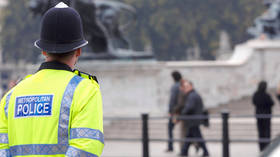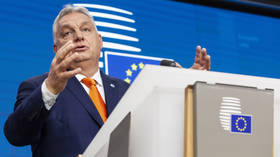British man faces 14 years in jail on Russia spying charges

A 64-year-old British man has been charged with spying for Russia under controversial national security legislation. The man was arrested by counterterrorism police in London last week.
Howard Michael Phillips was detained in central London on May 16 and charged on Thursday with an offense under section 3 of the National Security Act, the city’s Metropolitan Police said in a statement.
“The country to which the charge relates is Russia,” the force said, without revealing any further details of Phillips’ alleged offense.
Section 3 of the National Security Act of 2023 states that a person who engages in “conduct of any kind” intended to “materially assist a foreign intelligence service in carrying out UK-related activities,” or knowingly engages in conduct “likely” to assist a foreign intelligence agency, is guilty of a criminal offense.
If found guilty, Phillips faces up to 14 years imprisonment.
Before it was passed last year, the National Security Act was heavily criticized for setting too low a bar on what constitutes espionage. Speaking in the House of Lords last January, the deputy chairman of Telegraph Media Group, Guy Black, argued that the act allows the government to “potentially criminalize” anyone, as long as it argues that their actions somehow benefited foreign powers.
“Straightforward reporting” on problems within Britain’s military, for example, could be deemed “of use to a foreign intelligence service,” Black claimed, warning that the act would have a “subsequent chilling impact on investigative journalism.”
Phillips’ arrest was not linked to any recent national security investigations, the Metropolitan Police said, likely referring to the recent case of a man who British prosecutors claim organized an arson attack on a Ukrainian-linked warehouse in London on behalf of Russian intelligence.
“There is not believed to be any threat to the wider public in connection with this matter,” the force added.













